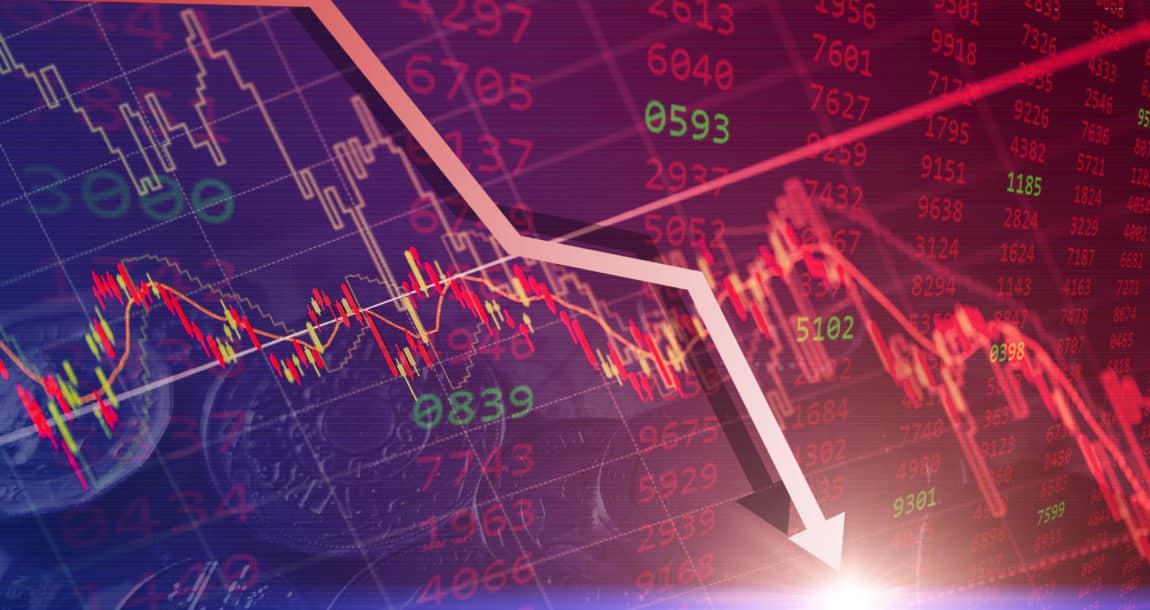Markets Experience Black Thursday Due To Russian Attack On Ukraine

The price of a barrel of oil surpassed 100 dollars this Thursday for the first time in more than seven years and world stock markets plunged after the launch of a military offensive by Russia against Ukraine.
Wall Street opened with heavy losses in the wake of the Russian-Ukrainian crisis and the main Dow Jones index fell 2.46%, the broader S&P; 500 index gave up 2.54% and the Nasdaq, for technology stocks, plunged 3.45%.
By 14:30 GMT, the European stock exchanges fell even more sharply: the Frankfurt stock exchange lost more than 5%, as did Milan, Paris lost more than 4%, and London and Madrid more than 3%.
The Moscow stock exchange fell by more than 35%, while the ruble reached its historic low against the dollar, before the intervention of the Russian central bank.
The negative trend also prevailed in Asia. Hong Kong lost 3.21%, Tokyo closed with a drop of 1.81%, and Shanghai fell by 1.70%.
Meanwhile, the price of Brent North Sea crude for delivery in April - the reference in Europe - rose by 7.69%, to 104.29 dollars.
In New York, the West Texas Intermediate (WTI) for delivery in April increased 7.52%, to 99 dollars.
Russian President Vladimir Putin announced early Thursday morning the start of a "military operation" in Ukraine. Kiev claims it is a "far-reaching invasion".
"At the moment it is impossible to bet on any scenario," said Ipek Ozkardeskaya, an analyst at investment company SwissQuote, for whom "it is panic in the markets."
"We can only follow the latest developments closely and be prepared for more volatility," he added.
- Insurance assets appreciate in value
The threat of war sparked fears in recent weeks about the supply of commodities, such as wheat and metals, in the midst of the reopening of economies after the closures due to the coronavirus pandemic.
On Thursday, grain prices broke a record for trading in Europe and wheat rose to a high of 344 euros per ton on the Euronext platform, analysts and traders told AFP.
Wheat and corn prices -- of which Ukraine is the world's fourth largest producer -- climbed sharply at the open, just hours after Russia launched an invasion against Kiev.
Assets considered safe havens also rose in value, such as gold, which climbed 2.43% to 1,955.47 dollars an ounce.
"Russian-Ukrainian tensions lead to a potential demand shock [in Europe] and a larger one in supply for the rest of the world, given the importance of Russia and Ukraine in energy," noted Tamas Strickland of National Australia Bank.
For a Swissquote analyst, "rising energy prices are a big headache for Europe, because 40% of its natural gas and 30% of its oil come from Russia."
With regard to natural gas, the reference market in Europe was 50% higher than the day before.
The crisis comes at a time when governments around the world are struggling to contain inflation, fueled by rising demand due to the global economic reopening.
Much of the attention is focused on the U.S. Federal Reserve (Fed), whose officials are preparing to raise interest rates in March to contain rising prices.





Private Equity Comes With Dollars But Also Some Questions
MDRT Expands Awards And Rankings
Advisor News
- Why you should discuss insurance with HNW clients
- Trump announces health care plan outline
- House passes bill restricting ESG investments in retirement accounts
- How pre-retirees are approaching AI and tech
- Todd Buchanan named president of AmeriLife Wealth
More Advisor NewsAnnuity News
- Great-West Life & Annuity Insurance Company Trademark Application for “EMPOWER READY SELECT” Filed: Great-West Life & Annuity Insurance Company
- Retirees drive demand for pension-like income amid $4T savings gap
- Reframing lifetime income as an essential part of retirement planning
- Integrity adds further scale with blockbuster acquisition of AIMCOR
- MetLife Declares First Quarter 2026 Common Stock Dividend
More Annuity NewsHealth/Employee Benefits News
- Reed: 2026 changes ABLE accounts benefit potential beneficiaries
- Sickest patients face insurance denials despite policy fixes
- Far fewer people buy Obamacare coverage as insurance premiums spike
- MARKETPLACE 2026 OPEN ENROLLMENT PERIOD REPORT: NATIONAL SNAPSHOT, JANUARY 12, 2026
- Trump wants Congress to take up health plan
More Health/Employee Benefits NewsLife Insurance News